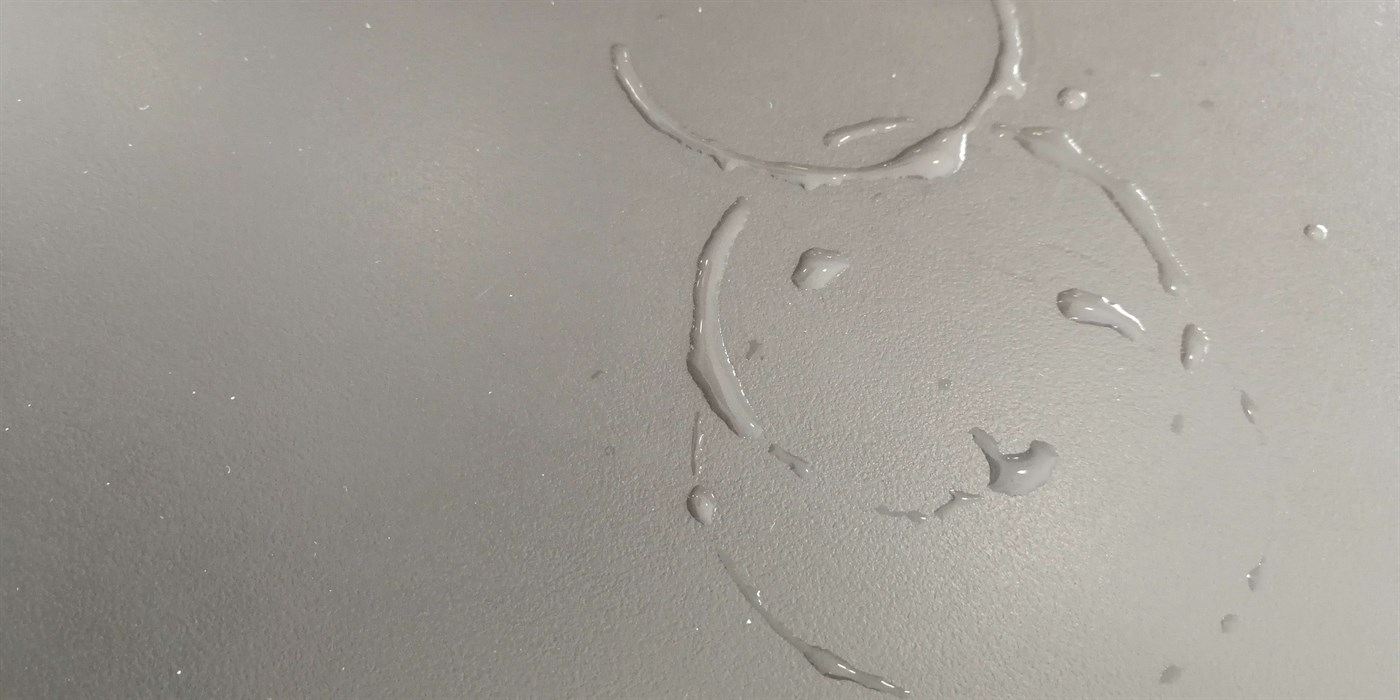
Quartz countertops are a delight to install in your home since they are highly durable and easy to clean. However, accidents happen and a spill or mess can get away from us. Left uncleaned, the spill evaporates and leaves behind an unsightly stain on your lovely countertops.
Thankfully, quartz is built to be stain resistant, so it should not be much of a problem to remove the contamination. Water spills can be a little tricker to remove since there are mineral deposits to etch off. If cleaned improperly, you can damage your quartz in the process of cleaning the problem stain.
Let us discuss how to thoroughly clean water stains so you can keep your quartz countertops shining and healthy.
Table of Contents
Benefits of Quartz
Now, you’ve heard this often and it’s probably the reason why you purchased quartz in the first place, “quartz is stain resistant.” That statement is correct as quartz is designed to be stain resistant. Quartz is manufactured to have a non-porous surface, allowing spills and stains to sit on the surface of the stone instead of seeping into any minute cracks. Compared to other stones, quartz is one of the most durable and easy to clean stones to have for a countertop.
That being said, quartz is still capable of being stained if messes are left to linger on its surface. Care must be taken to ensure spills are cleaned up in an appropriate amount of time, or else it will require some work to remove what is left behind.
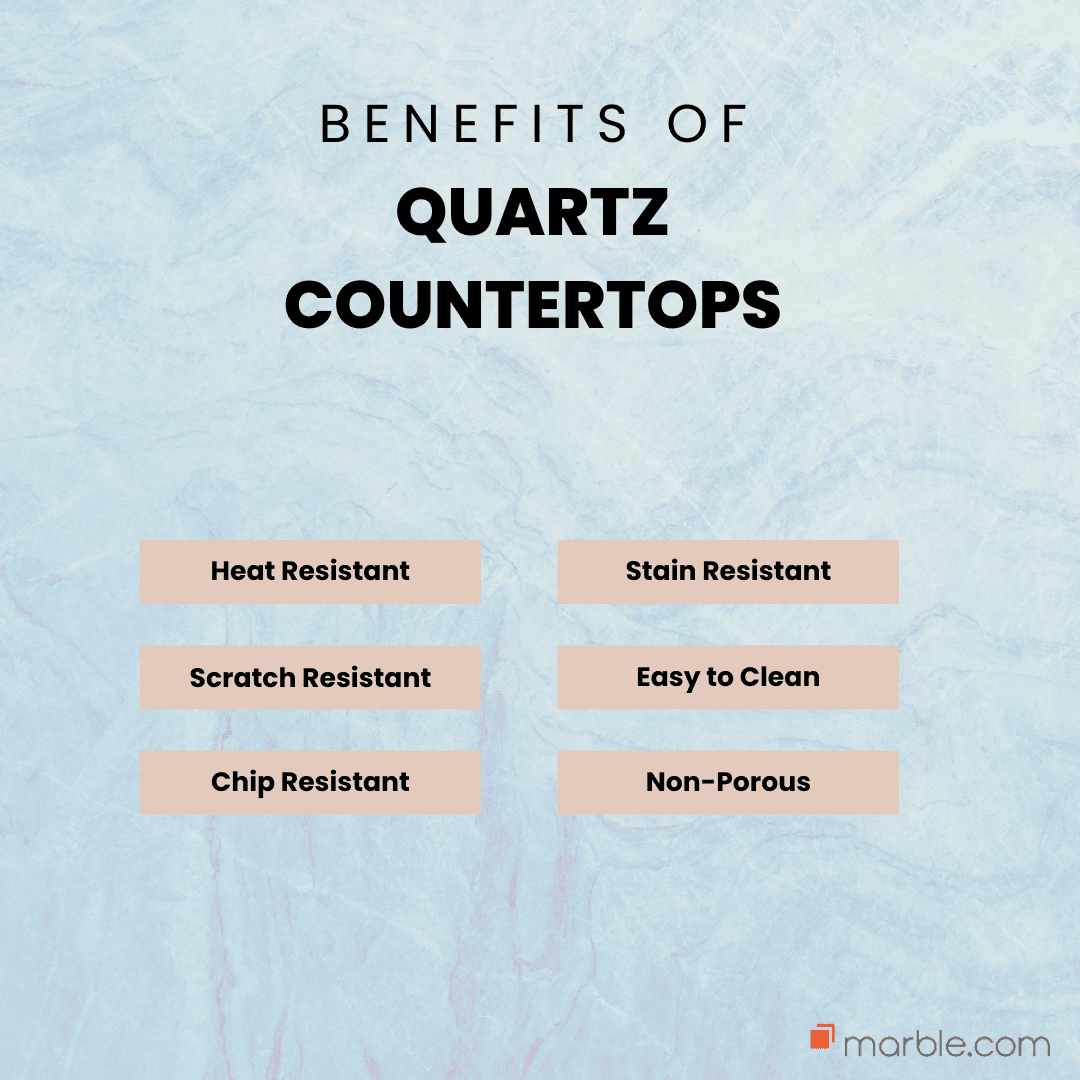
What Are Water Stains and Water Rings
Water rings are when moisture forms at the bottom of a cup, glass, or bowl, and leaves a ring of water on the counter. Water rings are easy to clean as a simple wipe with a paper towel or cloth will absorb the water.
Water stains are formed when water evaporates from a countertop, leaving behind leftover mineral deposits. These stains are also known as hard water stains, mineral deposits, or water marks.
What Causes Water Stains
Water stains are caused due to the tiny particles of minerals in moisture left to sit on a counter. When water is sitting on your countertop, it will eventually evaporate. During the evaporation process, any solid minerals like calcium and lime are left behind and stick to the countertop. The leftover minerals create a chalky white stain which can be difficult to remove.
These stains can come from rainwater coming through a window, brushing your teeth, moisture from a cup or glass or general water coming from the tap.
[get_quote]
Removing Water Stains
The benefit of quartz being non-porous means that any stain or spill is going to rest on the surface of the stone. This makes quartz very easy to clean with little or no need for heavy-duty cleaners like bleach.
Warm Water + Dish Soap
This is the preferred method of cleaning most messes on quartz countertops. Combine a small amount of mild dish soap with warm water into a bowl or bucket. Using a microfiber cloth or soft rag, use the soapy water solution to wash off as much of the mineral deposit as possible.
The combination of adding water onto the minerals should loosen it from your quartz. Once the stain is removed, use a dry rag to wipe down the counter. This ensures no excess moisture or soap bubbles remain on the surface.
Soft Scrubber
For hard water stains that are persistent, use a gentle soft scrubber, warm water, and dish soap combination. A soft scrubber is more abrasive than a microfiber cloth, which will help etch off the mineral deposits. Scrub in a slow and circular motion to cover as much surface area as possible.
Only use a soft scrubber, as hard scrubbers may damage your quartz countertops by dulling the finish.
Scraper
This method is for hard water stains that are proving difficult to scrub off and it’s time to get a little more serious. A scraper can easily scratch off hard mineral deposits, when utilized in the proper manner.
Holding a scraper or straight razor at a 45-degree angle, carefully scratch off the hard mineral deposits latched onto your countertop. It is recommended to start at the edge of the stain and work your way inward to the larger pieces.
Once most of the stain has been removed, use a combination of warm water and mild dish soap to clean off the remaining residue and lingering particles. After which, wipe down with a dry towel or paper towel.
Use caution when handling a scraper or any sharp object on a quartz countertop as too much force can scratch your quartz countertops, which will lead to a different issue.
Baking Soda + Water
If all else has failed, time to throw the gloves on and get scientific. Baking soda is a chemical leavening agent, meaning it is designed to chemically remove messes. It is also a very safe ingredient in baking goods and a common chemical for cleaning products.
This method requires creating a paste by having a bowl of warm water and sprinkling in baking soda. Stir the combination together until it makes a malleable paste. Take the baking soda paste and layer it over the hard water stain. Allow the paste to sit for about 10-15 minutes. The baking soda will chemically remove the mineral deposits and leave your quartz cleaned. After the allotted time, gently scrape off the paste and clean the area with a combination of warm water and mild dish soap. Then wipe down with a dry cloth.
Some stains may require additional applications of the baking soda paste and for larger stains, allow the paste to sit overnight.
Specialized Cleaners
Specialized cleaners are any type of stone countertop cleaner which is designed for removing stains. This method requires some research as each brand of quartz has their own cleaning instructions and guidelines regarding which cleaning agents can and cannot be used on their products.
Before purchasing any specialized cleaning agents, consult your quartz countertop supplier and listen to what they suggest for removing the hard water stain. Do not try to use a cleaner recommended by one brand for another as it may damage the finish or dull the stones color.
[get_quote]
Prevention
The key to keeping your quartz safe is to always be proactive in keeping it clean.
Coasters: Use coasters and pot holders for all cups and pots so any excess moisture is absorbed onto the coaster instead of your countertop.
Clean Spills Quickly: Do not wait to clean up a spill later. Time can get away from us and the faster you can clean the spill, the less effort you will need to clean up a stain later.
Cutting Boards: Use a cutting board when chopping foods to help absorb moisture from sliced foods. A cutting board also protects your countertop from getting cut.
Clean Regularly: Clean your quartz countertops on a regular basis with mild dish soap and water or a maintenance cleaner like Mr. Stone.
Do Not Stand on Countertops: Use an indoor ladder or foot stool to reach high to reach places. Do not stand on your quartz countertops as wet shoes or feet carry minerals, germs and bacteria which can harm you and your countertop.













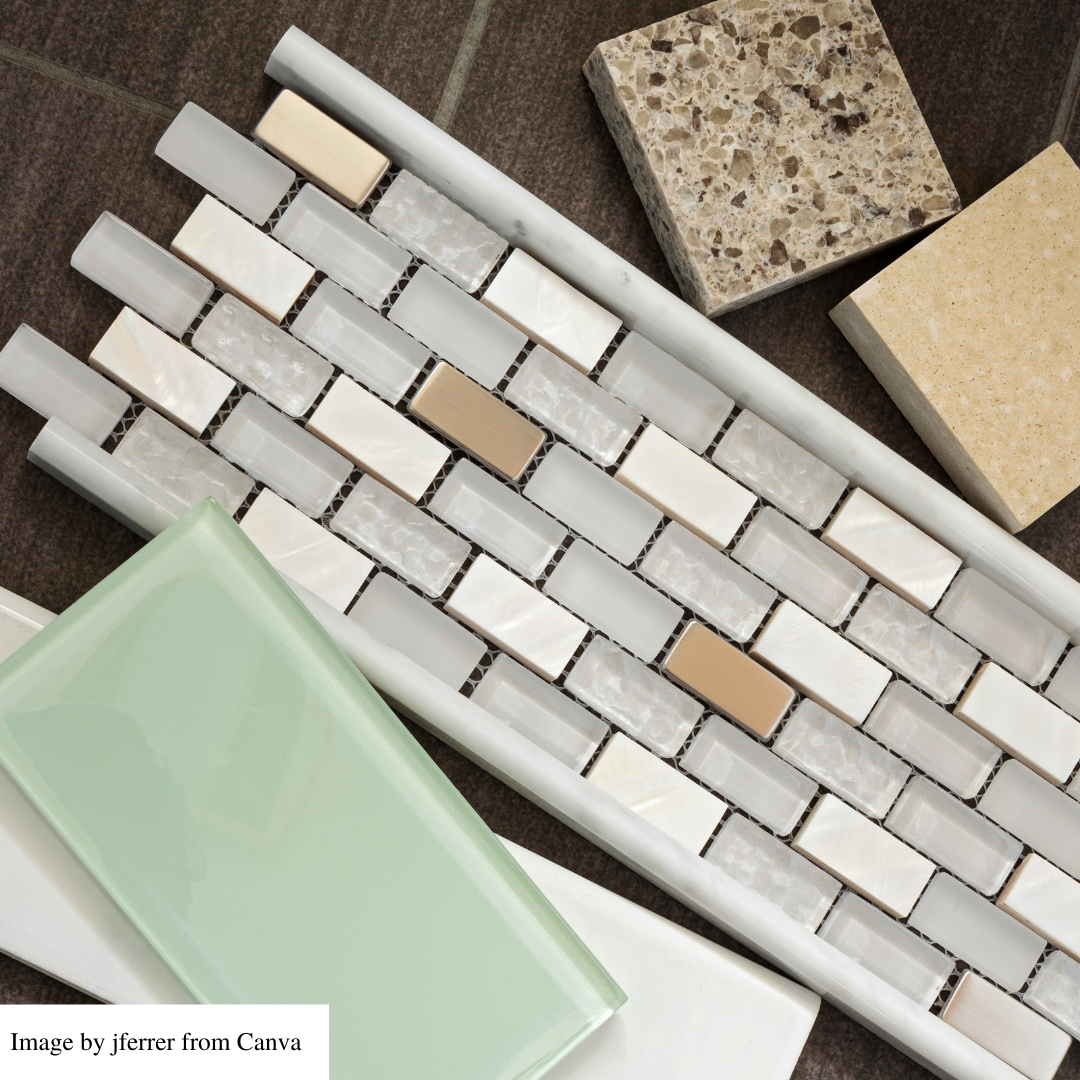
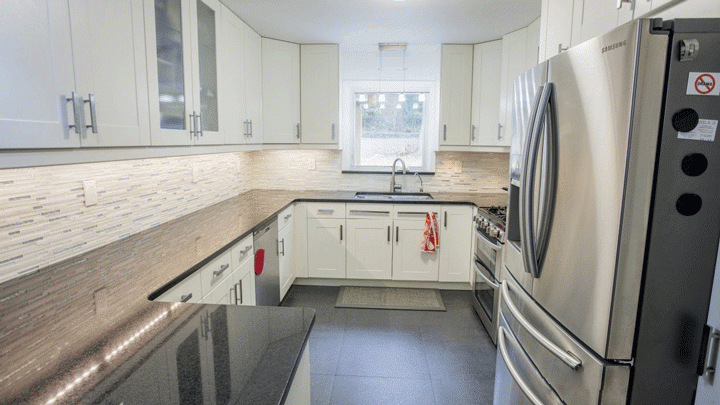
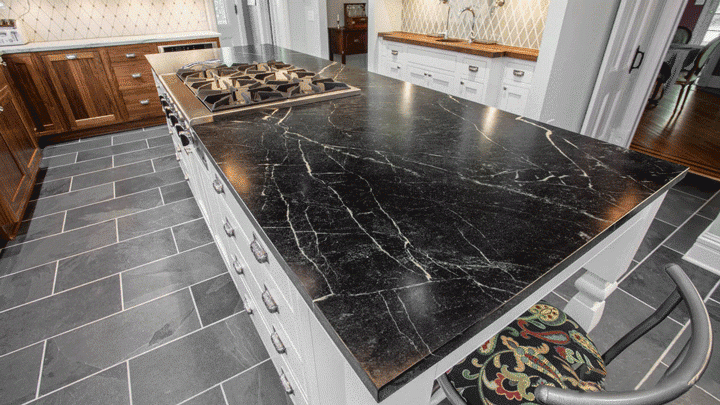
 The article helped me immensely
The article helped me immensely
 I’m now more informed on the subject
I’m now more informed on the subject
 I have questions about Marble.com
I have questions about Marble.com
 The article was not accurate at all
The article was not accurate at all
 There is a serious lack of information
There is a serious lack of information
 I have questions about Marble.com
I have questions about Marble.com